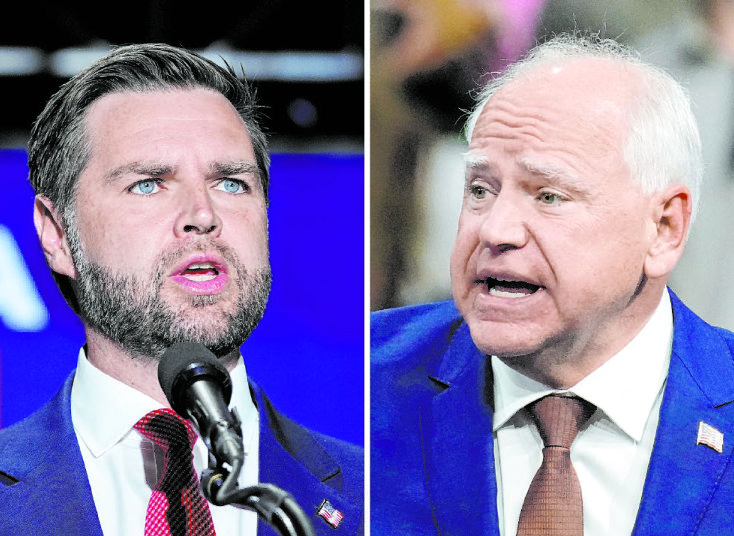
WASHINGTON — Tim Walz and JD Vance might have the chance to reshape the political landscape Tuesday in their first and only debate.
Vice presidential picks have traditionally taken on the role of political attack dog, laying into opponents so that their running mate can appear above the political fray.
Walz, the Democratic governor of Minnesota, made it to national prominence by labeling rival Republicans “weird.”
Vance, the Republican junior senator from Ohio, has torn into Vice President Kamala Harris ’ party on immigration.
The 90-minute debate will start at 6 p.m. PDT. It’s being moderated by “CBS Evening News” anchor Norah O’Donnell and Margaret Brennan of CBS’ “Face the Nation.”
CBS News is airing it on its broadcast network live and will livestream it on all platforms where CBS News 24/7 and Paramount+ are available.
It’s also being made available for simulcast, and other networks will likely air it. Here’s a look at past vice presidential debates. In 1992, Adm.
James Stockdale, running mate of third-party candidate Ross Perot, was going for breezy but seemed befuddled when he opened the debate by saying, “Who am I? Why am I here?”
His later response to a question, “I didn’t have my hearing aid turned up,” only reinforced that perception. The debate between No. 2s was highly anticipated in 2008 after Republican Arizona Sen. John McCain selected Alaska Gov. Sarah Palin as his running mate and saw a bump in the polls.
But her showdown with then-Delaware Sen. Joe Biden is best remembered for Palin approaching him before the start and saying, “Can I call you Joe?”
The vice presidential nominee and Texas Democratic senator, Lloyd Bentsen, offered a stinging rejoinder against his opponent, Republican Sen. Dan Quayle of Indiana, in 1988.
After Quayle compared himself to John F. Kennedy, Bentsen replied, “You’re no Jack Kennedy, senator.” In 2020, Harris faced off with Republican Vice President Mike Pence and declared when he tried to interrupt her, “I’m speaking,” a line she’s reprised in this campaign.
But both candidates might have been overshadowed by a fly that perched on Pence’s hair. A nominee’s choice of No. 2 has historically made little Election Day difference.
Historical analysis by Mark P. Jones, a political science professor at Rice University in Houston, suggests that voters aren’t really swayed by a candidate’s running mate.
Even the idea of using a pick to balance a ticket — like pairing the first major party nominee who is a woman of color with a white male in the case of Harris selecting Walz — may also be overstated.
“The evidence we have is that they’re really voting for the presidential nominee,” Jones said of Americans through the decades.
A key caveat might be that, given just how close the current race is looking to be in swing states, “It’s always possible that, at the margins, it may matter,” Jones said.
One reason why the Walz-Vance debate might shift more opinions this year is that Harris and Trump shared a stage only once, in early September.
That means Tuesday may be the last chance before Election Day for voters to see the two tickets square off directly.
But, more likely, Walz and Vance will simply need to avoid memorable unforced errors that can be endlessly replayed. Jones said such a race-shifting gaffe is unlikely — but not impossible.
“They’re disciplined,” Jones said. “But all it takes is one.”

